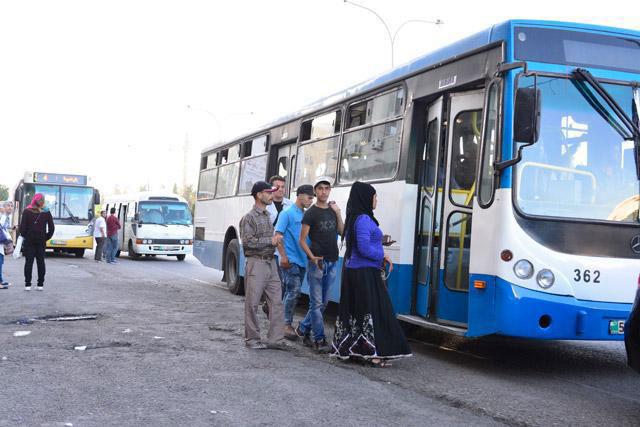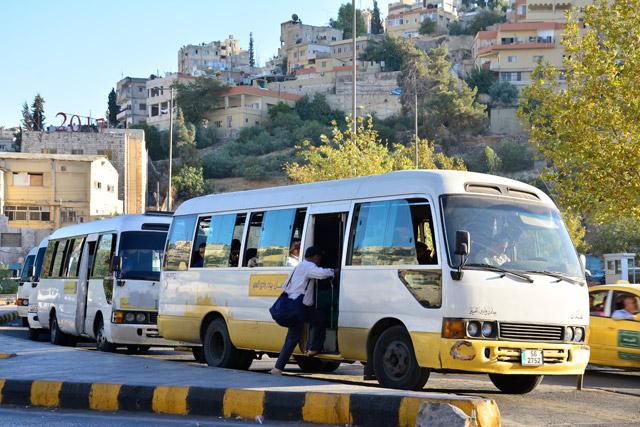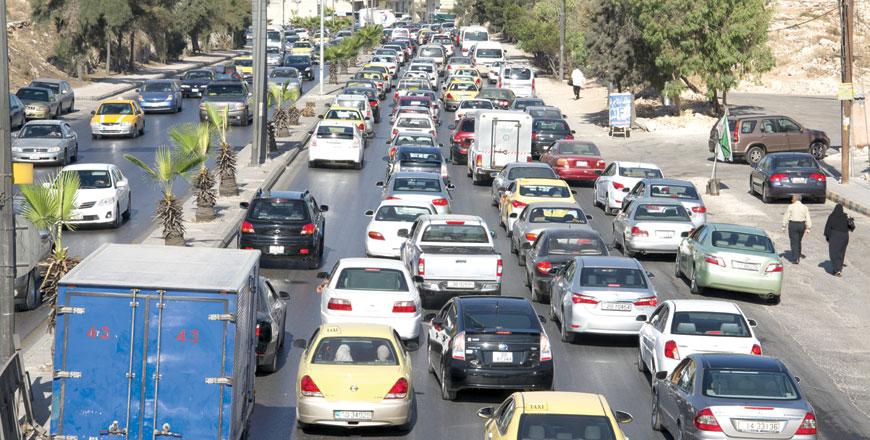You are here
GAM expands fixed-route taxis’ service in residential areas
By Ana V. Ibáñez Prieto - Mar 05,2018 - Last updated at Mar 05,2018

The Greater Amman Municipality on Saturday announced measures to improve the public transportation service in residential areas, expanding fixed-route taxis' service to several other areas in the city through new licences (Photo by Amjad Ghsoun)
AMMAN — The Greater Amman Municipality (GAM) on Saturday announced measures to improve the public transportation service in residential areas within its administrative boundaries, waiving the previous permits granted to fixed-route taxis to expand their service to several other areas in the city through new licenses.
The new service routes will target the areas of Khalda, Um Al Sumaq, Shafa Badran and Al Naser.
The measure is aimed at increasing transportation services in the areas surrounding the major public transport routes and the planned stations for an express bus project, the Bus Rapid Transit, to be implemented in the near future, according to a press release by GAM.
“Providing public transportation options to users within residential areas will help granting citizens greater access to commercial, health and educational services,” director of the transport department at GAM, Abdul Rahim Wreikat, told The Jordan Times in a recent interview, adding that the white fixed-route taxis will also work as “feeder lines for the main routes of mass transit buses, as well as reducing congestion on the roads”.
Regarding the means of implementing the new system, Wreikat explained that “to encourage existing operators to work in the target areas, they will receive temporary permits subject to a three month evaluation term, to later grant them permanent permits that will enable them to work in the selected and tested districts”.
The decision was welcomed by Hazem Zureiqat, founding member of the public transport advocacy campaign Maan Nasel, who stressed that "public transport services in Amman should be restructured in a way so that there is a clear hierarchy, where high-capacity modes serve high-demand corridors, and smaller vehicles operate as feeders to high-capacity modes — and what GAM has announced seems consistent with this approach”.
"The white service taxis are ideal for providing neighbourhood services in a city like Amman, given the relatively low demand in these areas and the hilly topography that is sometimes hard to maneuver for large vehicles," Zureiqat added, expressing hopes for "this effort to continue; for these services to become well integrated within a network where users can easily switch from one mode to another".
For his part, public transportation researcher Ali Attari noted that “an important challenge in the sector is the distance that commuters must cross in order to make it to the bus stop or to their final destination”, adding that “improving the public transportation service in residential areas will help in tackling this issue; improving the network as a whole by providing more feeder lines to the major public transport routes running on main roads”.
However, the expert also noted that “this is only part of the solution, and more steps need to be taken in order to improve the quality of the service and make it a viable alternative to cars”.
Related Articles
AMMAN — Despite the attention brought by authorities to the issue of public transportation over the past few months, citizens continue to co
AMMAN — Traffic policemen dressed in civil attire will be using means of public transportation to monitor drivers’ abidance by traffic regul
AMMAN — Traffic jams on Amman's streets cost motorists around JD1 billion annually, according to an estimate by an official at the Greater A
















